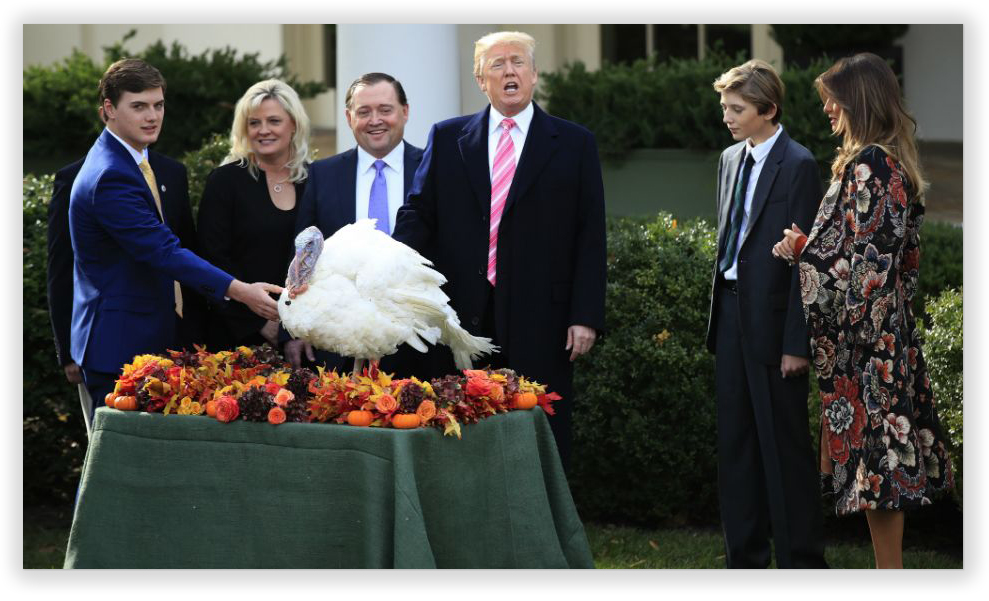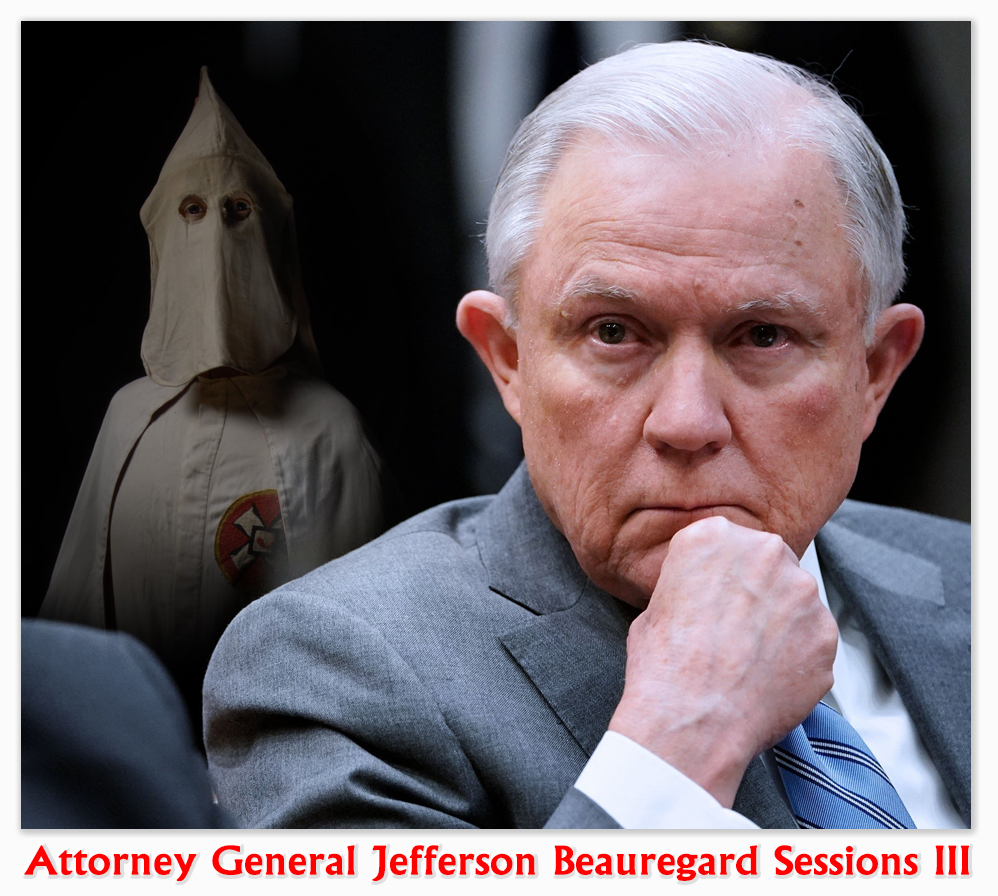We post news and comment on federal criminal justice issues, focused primarily on trial and post-conviction matters, legislative initiatives, and sentencing issues.

IT’S THE WITCHING HOUR FOR FIRST STEP
The Senate reconvenes today for what promises to be a busy lame-duck session, one that may be easier for Republicans to manage because they retained control of the Senate after last week’s bruising mid-term election.
 The biggest task facing the Senate is to address the budget ahead of a December 7th deadline. But equally important to 5,000 of our readers who happen to be guests of Uncle Sam’s Bureau of Prisons, the Senate has a final chance before the end of the year to pass a bill that combines prison and sentencing reforms calculated to improve the lives of more than 180,000 federal inmates while increasing the odds that they will never be inmates again.
The biggest task facing the Senate is to address the budget ahead of a December 7th deadline. But equally important to 5,000 of our readers who happen to be guests of Uncle Sam’s Bureau of Prisons, the Senate has a final chance before the end of the year to pass a bill that combines prison and sentencing reforms calculated to improve the lives of more than 180,000 federal inmates while increasing the odds that they will never be inmates again.
The FIRST STEP Act (S. 2795), a pronounceable acronym for the “Formerly Incarcerated Reenter Society Transformed Safely Transitioning Every Person Act,” offers prison programs in an attempt to reduce inmates’ likelihood to re-offend after they’ve been released. The House approved the bill in May. In August, the White House brokered a compromise among several senators, including Senate Judiciary Committee Chairman Charles Grassley (R-Iowa) and Richard Durbin (D-Illinois), to include some sentence reform provisions from the Sentencing Reform and Corrections Act of 2017 (S.1917), which the Senate Judiciary Committee approved last winter.
The amended Act will reportedly be introduced in the Senate today.
The changes that would flow from passage of FIRST STEP are incremental but significant: Increases in compassionate release of terminally ill inmates: bans on restraints for pregnant inmates during childbirth, cuts to some mandatory minimum sentences, greater leeway for judges imposing sentences, more good time, elderly inmate home confinement, and programs that let inmates earn more time in halfway house and home confinement.
But some tough decisions and hard bargaining lie ahead. The bill is hotly debated and opposed by some conservatives who worry it may release dangerous people prone to reoffend and overburden local police. There is also fear that mixing sentencing reform with prison reforms, which have generally had more support among lawmakers, will threaten chances of passing a criminal justice bill this year before having to start all over again with a new Congress.
Georgetown University law professor Shon Hopwood said he thinks legislators have found a compromise that can pass Congress and be signed into law. FIRST STEP will not bring retroactive relief to that many inmates, but Hopwood still says the reforms would bring about concrete changes in the lives of many federal inmates.
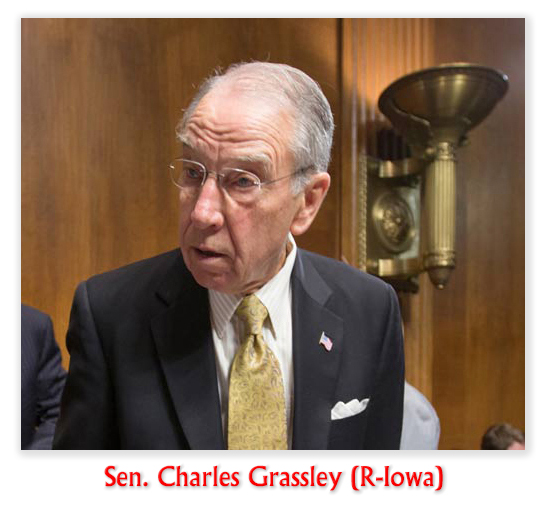 Sen. Grassley said last month he thinks the plan to combine the FIRST STEP with his own SRCA can get through the Senate. “We’ve already worked out what I think is something that can move in the Senate if we can get it up, and it would be both sentencing reform and prison reform,” Grassley said. While he did not elaborate on the nature of the agreement, he said he’s been in talks to get the compromise legislation moving in the lame-duck session between November’s elections and the end of the current Congress in January.
Sen. Grassley said last month he thinks the plan to combine the FIRST STEP with his own SRCA can get through the Senate. “We’ve already worked out what I think is something that can move in the Senate if we can get it up, and it would be both sentencing reform and prison reform,” Grassley said. While he did not elaborate on the nature of the agreement, he said he’s been in talks to get the compromise legislation moving in the lame-duck session between November’s elections and the end of the current Congress in January.
A committee aide said the in-the-works deal rolls in several elements of the SRCA, including reductions in mandatory minimums, increased flexibility for judges to set lower sentences, change to how 924(c) enhancements for drug crimes are calculated and Fair Sentencing Act of 2010 retroactivity.
Conservative Republicans who oppose FIRST STEP lost traction last week with the forced resignation of Attorney General Jefferson Beauregard Sessions III, who had previously infuriated Grassley with his unsubtle lobbying to kill SRCA in Committee. Last week, the Fraternal Order of Police, a vigorous opponent of SRCA last March, issued a press release supporting the amended FIRST STEP.
What’s more, some influential conservative voices favor the amended FIRST STEP Act. The National Review said last Friday that “by a 360–59 vote, the House adopted prison reform via the FIRST STEP Act. The Senate should add sentencing-reform language before full adoption.”
There is a chance some controversial elements of prison reform, such as increased “good time,” could still fall by the wayside in order to mollify some conservative concerns with the existing legislation, according to Rep. Doug Collins (R-Georgia), the House FIRST STEP Act (H.R. 5682) sponsor. But not including sentencing reform in the package could alienate Democrats needed to ensure the compromise legislation passes both chambers. Longtime sentencing reform advocate Sen. Durbin and other Democrats like Sen. Cory Booker (D-New Jersey) and Sen. Kamala Harris (D-California) had previously opposed FIRST STEP because it did not include sentencing reform. The three instead pushed for the Grassley/Durbin-sponsored SRCA, although they don’t appear to have been involved in crafting the Senate Judiciary Committee chairman’s compromise legislation.
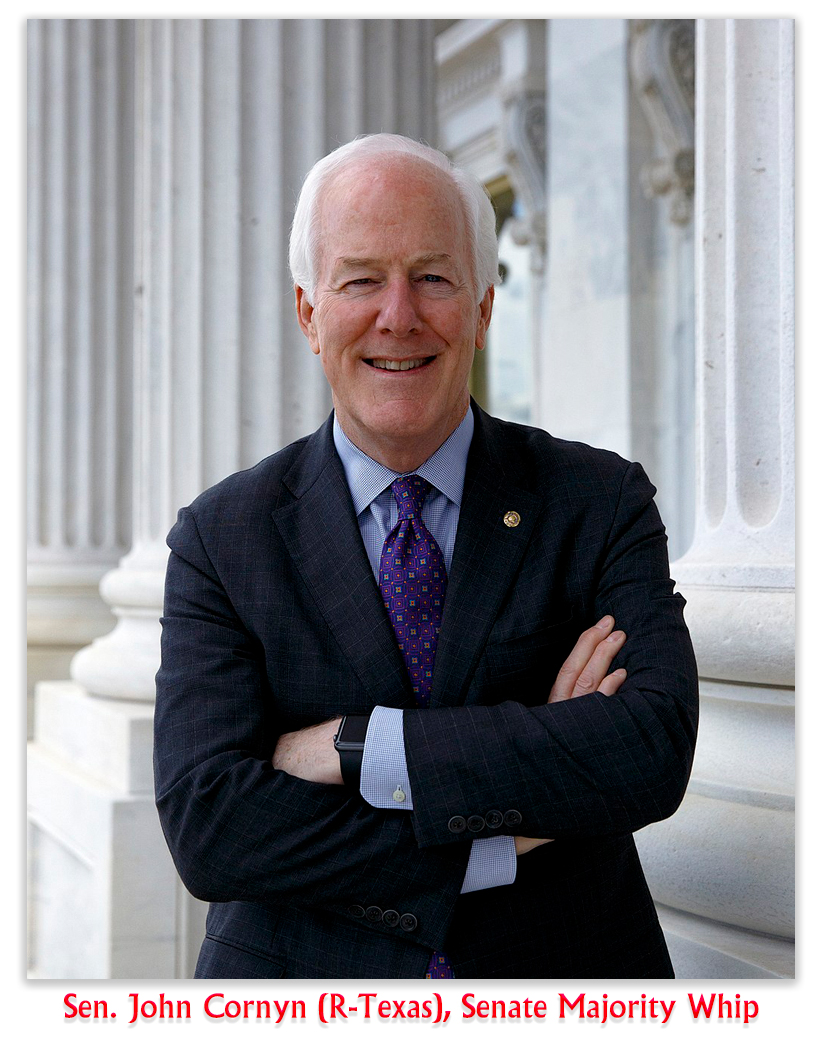 Sen. John Cornyn, R-Texas, the majority whip and main sponsor of the Senate version of FIRST STEP, said last month that Senate Majority Leader Mitch McConnell (R-Kentucky) will have a tight schedule to fill, between confirming the backlog of two dozen judges and keeping the government open ahead of a Dec. 7 funding deadline. “Certainly Sen. McConnell is going to prioritize federal judicial nominations, but if there is the will to move on legislation, that would be included,” Cornyn said. However, with Republicans not just retaining, but building on their majority in the Senate for the next Congress, the pressure may be off McConnell to push through judicial appointments before next term.
Sen. John Cornyn, R-Texas, the majority whip and main sponsor of the Senate version of FIRST STEP, said last month that Senate Majority Leader Mitch McConnell (R-Kentucky) will have a tight schedule to fill, between confirming the backlog of two dozen judges and keeping the government open ahead of a Dec. 7 funding deadline. “Certainly Sen. McConnell is going to prioritize federal judicial nominations, but if there is the will to move on legislation, that would be included,” Cornyn said. However, with Republicans not just retaining, but building on their majority in the Senate for the next Congress, the pressure may be off McConnell to push through judicial appointments before next term.
Those advocating for reform have an ally in the White House: President Donald Trump’s son-in-law Jared Kushner has championed passage of FIRST STEP for months, and Trump himself has continued to say he would support the Act.
A CNN report last week suggested continuing White House interest in FIRST STEP. CNN said that former New Jersey governor Chris Christie, whom CNN says is a front-runner to be President Trump’s new attorney general, attended a “law enforcement roundtable on prison reform efforts at the White House on Thursday morning.” Christie then met privately with the President’s son-in-law and senior adviser Jared Kushner to further discuss prison reform issues. An administration official said Kushner and Christie have “a really close and good working relationship, particularly as it relates to prison reform.”
Some reform advocates worry that pushing too hard to add too much to a reform package could jeopardize the progress made by FIRST STEP. Kevin Ring, president for FAMM, said there are real people who will have their lives improved by the bill, and they could easily end up with no legislation at all. “We’d greatly prefer having the sentencing be a part of it, but we don’t want to hold out for everything and end up with nothing,” he said.
For Hopwood, the next two months presents a choice between trying to help as many people as possible now and going for the long haul. “What you’re saying when you hold out for systemic reform is, ‘We don’t want to help the lives of people who are in the system for 20 years,’ because it might be that long,” Hopwood said.
Law360, Hard Decisions Loom In Lame-Duck Push For Sentencing Reform (Nov. 4, 2018)
CNN, Trump considering Christie, Bondi, Acosta for attorney general (Nov. 8)
National Review, The Lame-Duck Session Should Sprain Trump’s Wrist (Nov. 9)
– Thomas L. Root


 President Trump is still pressing the Senate to take action this year, and the ACLU is running ads in Kentucky demanding that Senate Majority Leader Mitch McConnell (R-Kentucky) schedule a floor vote. McConnell said last Tuesday that he will go where the votes are within the Republican Party. “We will be whipping that to see whether — what the consensus is — if there is a consensus in our conference about not only the substance, but the timing of moving forward with that particular piece of legislation,” McConnell told reporters.
President Trump is still pressing the Senate to take action this year, and the ACLU is running ads in Kentucky demanding that Senate Majority Leader Mitch McConnell (R-Kentucky) schedule a floor vote. McConnell said last Tuesday that he will go where the votes are within the Republican Party. “We will be whipping that to see whether — what the consensus is — if there is a consensus in our conference about not only the substance, but the timing of moving forward with that particular piece of legislation,” McConnell told reporters. The Washington Post reported last Tuesday that Republicans are actively discussing changes to FIRST STEP in order to win more GOP support. One change being discussed privately is tightening the “safety valve” provision. Although the most recent draft of the bill broadens the people eligible for “safety valve” treatment, Sen. David Perdue (R-Georgia) said senators are talking about reducing the people who would qualify for the “safety valve” provision.
The Washington Post reported last Tuesday that Republicans are actively discussing changes to FIRST STEP in order to win more GOP support. One change being discussed privately is tightening the “safety valve” provision. Although the most recent draft of the bill broadens the people eligible for “safety valve” treatment, Sen. David Perdue (R-Georgia) said senators are talking about reducing the people who would qualify for the “safety valve” provision.





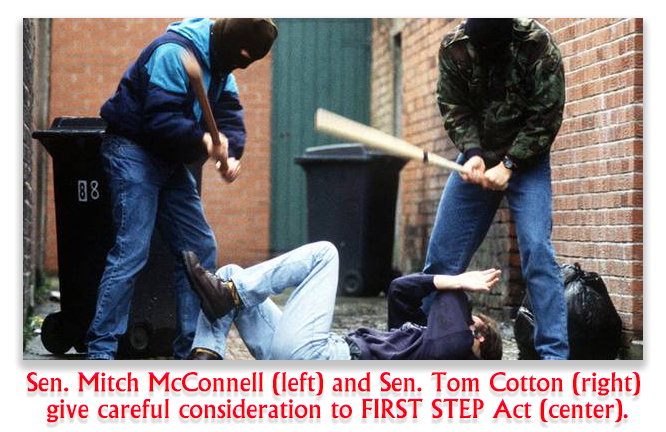




 CNN said supporters of the measure expect that Trump’s explicit backing will help propel the prison and sentencing overhaul bill through Congress, a push White House officials hope to accomplish during the lame duck session of Congress.
CNN said supporters of the measure expect that Trump’s explicit backing will help propel the prison and sentencing overhaul bill through Congress, a push White House officials hope to accomplish during the lame duck session of Congress.






